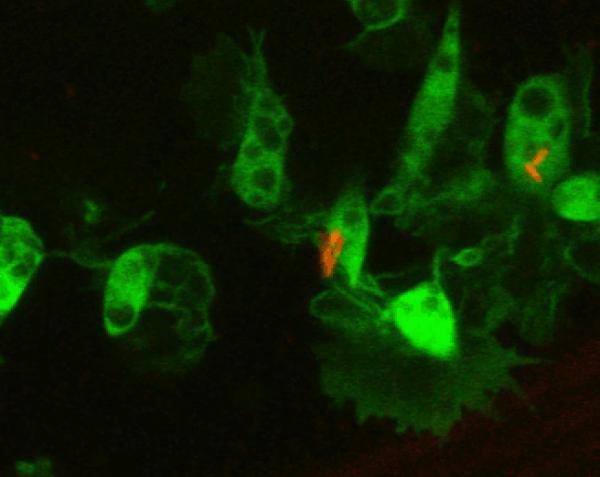Researchers have developed a new tool that allows direct recording of bacterial attack on hosts.
While most studies of bacterial attacks were carried out after the host died, this time, the system developed by Bath University and Exeter University was first recorded. Direct image of the attack of bacteria on the host body.
The researchers used the developing fruit fly embryo as a prototype in the experiment.They injected the bacterium with fluorescents attached to this embryo and observed the interaction of the immune system in the embryo through a microscopic concentric microscope.
Scientists also track the movement of each protein in the microbial body and determine its specific role in the infection process.
This system is expected to apply to future sources such as Listeria and tripanosoma. By observing how microbes interact with the host's immune system, researchers will better understand how they attack the body and thereby find effective countermeasures.
Dr Will Wood, a researcher at the University of Bath's Department of Biochemistry, explains: 'Cells often react very differently when they are removed from their natural habitat and implanted into a shallow lid. "
 Image taken from an insect immune cell microscope (blue) containing E. coli (red) (Photo: copyrighted by the University of Bath)
Image taken from an insect immune cell microscope (blue) containing E. coli (red) (Photo: copyrighted by the University of Bath)
'In the body, immune surveillance cells such as hemocytes (or macrophages in vertebrates) are exposed to many signals from different sources. These cells integrate the signals and react to them accordingly. "
'When the cells are removed from the complex natural environment and implanted into the artificial disk, those signals are lost. Therefore, the requirement is to study the overall body of the host to understand the process of interacting with bacteria. '
Dr. Nick Waterfield, co-author of the study, said: 'Success in direct recording of the micro battle between host cells and immune cells is a surprise for the scientific community. . '
'Finally, this allows us to understand the dynamic nature of the attack process.'
Professor Richard French of the Department of Natural Molecular History, University of Exeter, added: 'For the first time, this allows us to directly test the attack of bacteria in an intact host - This is a big step. '
The research is funded by the Wellcome Trust and the Biotechnology and Biotechnology Research Council. Research results appeared in PLoS Pathogens.
 Why do potatoes have eyes?
Why do potatoes have eyes? 'Tragedy' the world's largest carnivorous life: Death becomes ... public toilet
'Tragedy' the world's largest carnivorous life: Death becomes ... public toilet Tomatoes were once considered 'poisonous' for 200 years
Tomatoes were once considered 'poisonous' for 200 years Detecting microscopic parasites on human face
Detecting microscopic parasites on human face